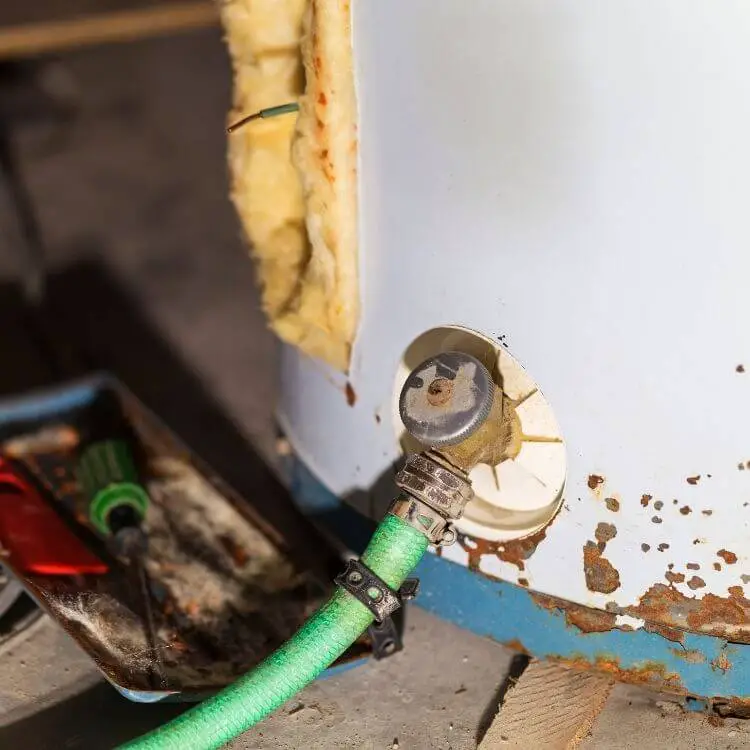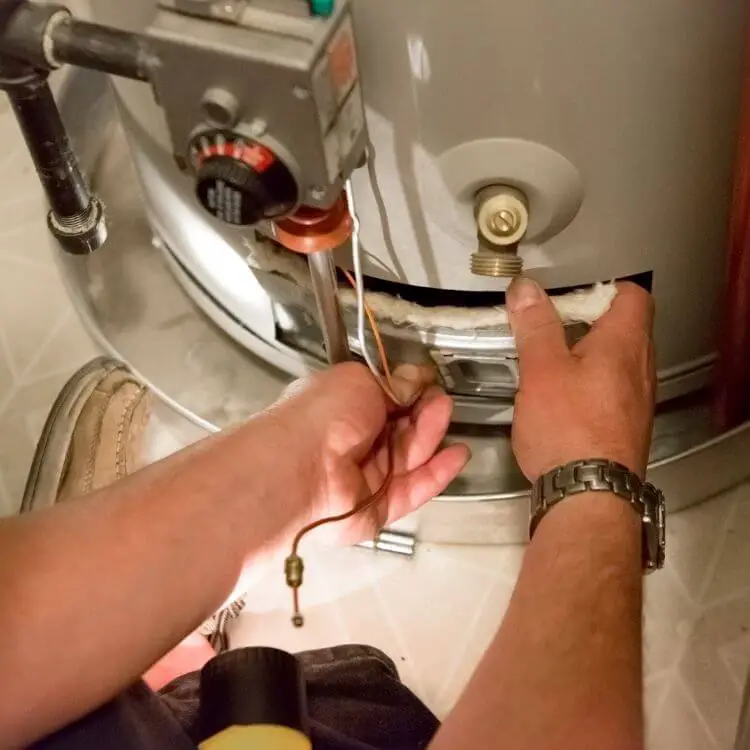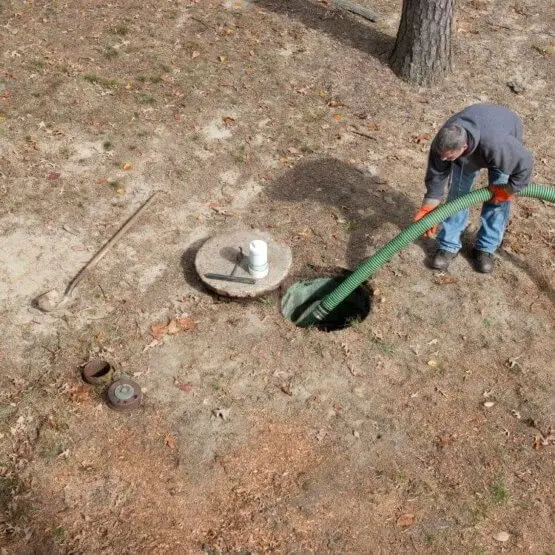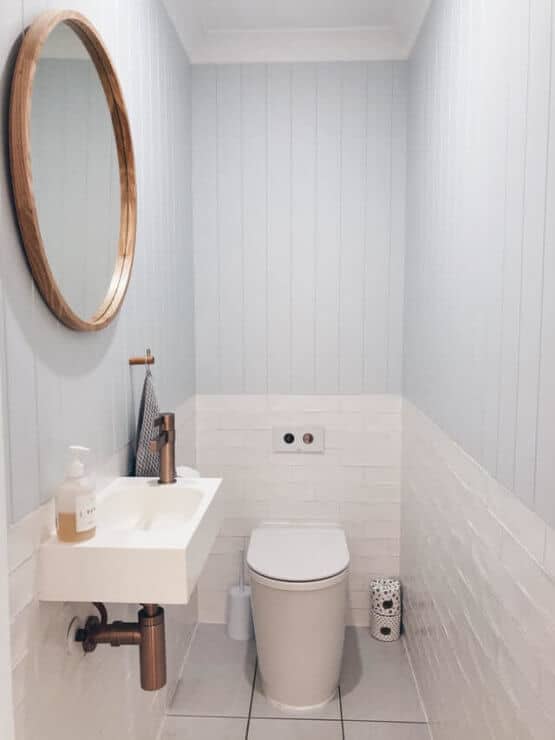Within our homes, concerning smells are one of the most troublesome things to happen. We may feel unsafe within our own homes. Worse yet, these smells signify serious issues that need dealing with. Without proper care and resolution, these problems can escalate which is why today we are exploring why your hot water heater smells like sewage.
Hot water heater smells like sewage

The problems of bad smells within our home are varied. The most immediate issue is that they can make it uncomfortable to dwell in the areas of the house where they spread. Even if this doesn’t lead to any significant side effects, it still remains a troublesome factor in our daily lives. [1]
However, it’s not impossible for us to end up getting side effects from bad smells. Nausea and dizziness are the most cited issues people run into when dealing with sewage smells in their homes. The mild beginnings may not be worrisome to most but preventing such problems from occurring is much better than having to endure them. [2]
Lastly, it’s very possible that the smell will stick in the air and the walls of the area. This can make getting rid of the smell much harder and result in higher costs of removing these bad smells. Of course, the severity of this problem depends on the cause.
Why does my hot water heater smell like sewer

The first question you’ll be asking yourself when smelling an odd smell is what causes it. The key source of bad smells is bacteria. Bacteria form within our drain when various materials accumulate within them. With the bacteria in our drain, it will quickly become apparent what side effects they bring because the sewage smell will show up within our home. [3]
The materials that accumulate within the pipes can cause clogs on their lonesome too so this problem is already twofold. The bacteria will start causing gas to form within the pipes too. This gas is the key source of the sewage smell we feel. While initially, it will sit in the drain, turning the water on will get it up on the surface.
Furthermore, this smell can come from different sources. Depending on a few factors we can better determine the source and diagnose the issue. If it’s specifically your drain that’s plagued by a bad smell, you will feel that bad smell exclusively around the drain. While this is a problem, it may be the easiest one to resolve. A simple deep clean of the drain may end up resolving the issue.
The heat of your water in correlation to the smell of the water is your second step. If you are experiencing a situation where the bad smell is only present when using hot water, then the issue stems from the water heater. The bacteria in question are certainly coming directly from it, spreading the sewage smell throughout the house. Frequently, these types of troublesome bacteria form when the water heater hasn’t been used for extended periods of time.
Another situation where we may see this issue occurring is during low temperatures within the heater. The lack of use obviously allows these bacteria to accumulate with no issue as no water flows through the water heater. The low temperatures keep the areas within the water heater decently conditioned for bacteria to survive easier. If this is the case, we suggest cleaning out the hot water heater as soon as possible.
In case water smells like sewage all the time, even when cold water is on, your issue comes from the water supply. The smell is climbing its way through the piping within our home and spreading through it.
Water heater odor killer
Of course, where there are smells there are going to be countermeasures. While it is assumed you’ll take care of the issue regardless, some of the smell may still linger throughout your home. Besides, it’s easier to work through the issue if the smell of sewage isn’t constantly under our noses. To clear them out, we can use odor killers for simple removal.
Chlorination
The first and probably the most well-known way of removing odors from your water is chlorination. Chlorination is used for regular water treatment and as a method for cleaning water within pools. The way we go through this process is by pumping chlorine into the system that’s infected with bacteria and then pumping water out.
This works best within closed systems such as drains and water heaters, use implemented valves and systems that allow you to stop the flow of water throughout these systems before engaging in chlorination.
By isolating the other sources of water from chlorine you are removing the possibility of water retaining its unpleasant taste. That’s the overall downside of chlorine, in fact, the water treated by it will be off-putting to drink so keep it in mind when utilizing this cleaning method.
Chlorine Dioxide
Similarly applicable is chlorine dioxide gas. It can be easily administered by dispersing it in an enclosed space. It will make quick work of any bad smells present within the area with no problem.
Chlorine dioxide fully destroys all odors, leaving your home permanently free from bad smells. Obviously, if the source of the problem isn’t addressed the sewage smell will come back and the treatment will need to be repeated. Chlorine dioxide isn’t really the most common gas or method used for this purpose but it can do its work well.
Despite it being a gas, it is non-toxic and environmentally friendly. After the treatment, the area will be safe for humans to inhabit even if the area has been exposed to it for a longer period of time. It’s also worthwhile to mention that Chlorine Dioxide destroys various pathogens which easily leads to improved air quality overall.
Hydrogen Peroxide
Similar to chlorine, we have hydrogen peroxide. Their similarity stems from the fact that both of these are very potent oxidizers. Hydrogen peroxide is capable of clearing the bad smells within the section of your house that needs it.
Additionally, it leaves no trace behind like chlorine. The unappealing taste of chlorine leaves in water isn’t present with hydrogen peroxide. After using it, there will be no trace of it within the household. Make sure to mix it in properly to get maximum efficiency.
Degasifiers
You can even use certain machines to make the odor go away. These machines have a single purpose, clearing out gas from your water. By doing so, the odor caused by the gases is removed.
These machines are called degasifiers and they are very useful for increasing the purity of your water. While mechanical rather than chemical, this method has a similar approach. It uses oxidization to eliminate substances from the water. Most harmful gases will be filtered out, leaving your water at a decently high level of purity.
These machines can assist with organic compounds too. Depending on the situation you are in, employing a degasifier in this way can be a lot easier than other solutions. The only thing it requires to operate is electrical power too so costs, apart from the initial purchase, are minimal. [6]
How to remove smell from water tank

So let’s wrap up the types of cleaning your hot water heater can endure. The problem with these types of issues is that consistency and immediate action are required to get the problem sorted.
Hot water heater smells like sewage
The smell of sewage often comes from the hydrogen sulfide gas that goes throughout our system. It is a frequent problem that happens in households both old and new. The amount of hydrogen sulfide within the home can drastically increase from a variety of recent occurrences. Keeping an eye out for these problems before they come to fruition is a smart move. [7]
Hot water heater smells bad
Keep in mind that the bad smell coming from your hot water heater can come from other factors. If the smell of burning rubber is a concern, it may have something to do with the inside components of the heater. The plastic around its switch may be burning, which is something most commonly associated with switches found outside of the water heater. Insulative parts of the wiring may also cause this burning, this can stem from improper installation and is a major cause for concern.
The problem of odd smells may also come in the form of an electrical burning smell. In this situation, we suggest checking out the electric installations within your home. Especially those connecting to the hot water heater itself. Overloading within those systems can easily lead to a burning smell.
Conclusion
The sewage smell in our home is an awful side effect that we’d rather avoid. Its potency can vary but no matter how nauseating the stench gets resolution is in order. Now, the ways to go about it have been laid out above. The application of which is something to consider when dealing with the problem.
The problem can get worse if not treated, with sewage smell getting into the walls or other rooms. It’s preferable to get rid of the issue immediately rather than bother with a more complex one later down the line.
We hope the above advice will help you solve the issue. After all, it’s better to resolve such problems than let them linger.

Michael Davis is a heating & plumbing expert who currently works as independent contractor in SC. He also writes for Plumbertip.
For almost 10 years he worked on various plumbing tasks across South Carolina.


